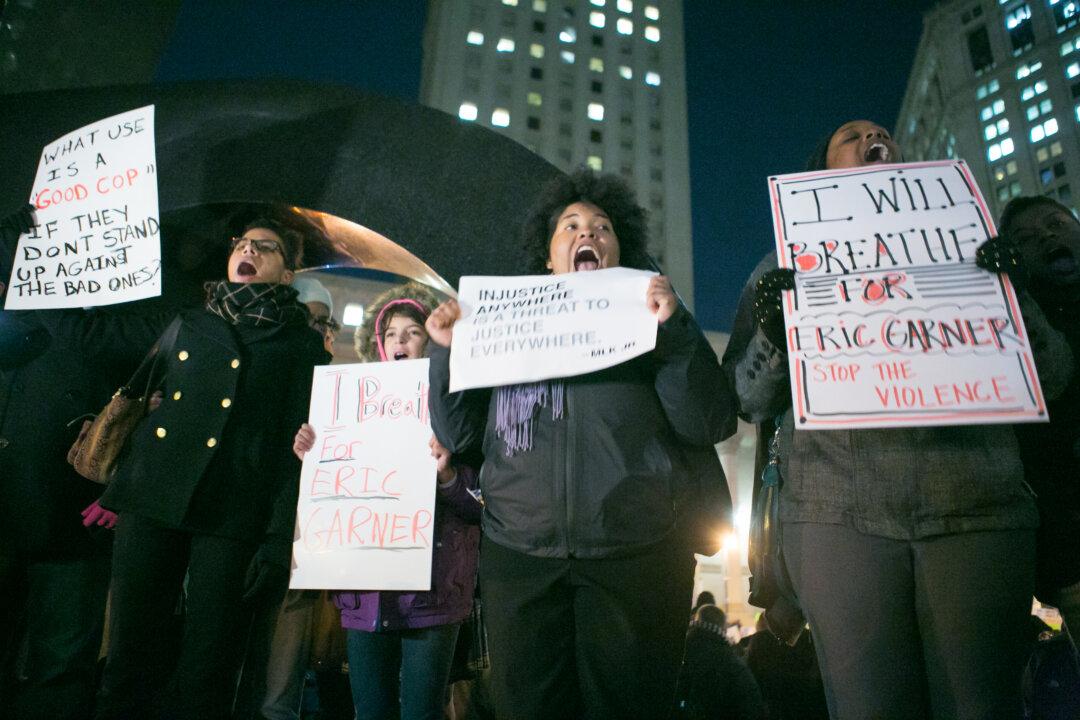Police officers who used a chokehold to restrain civilians received light penalties or none at all, according to a report released Monday by the Office of the Inspector General for the NYPD—a police watchdog under the Department of Investigation.
Although it is not against the law, the chokehold is a tactic long banned by the police department. A chokehold is “any pressure to the throat or windpipe, which may prevent or hinder breathing or reduce intake of air.”
The report was commissioned shortly after the death of Eric Garner, who died after a police officer placed him in a chokehold while arresting him for selling untaxed cigarettes.
After Garner’s death, the police department came under intense public scrutiny for failing to discipline officers who were found to have committed wrongdoing by the Civilian Complaint Review Board (CCRB), the city agency in charge of investigating civilian complaints of police misconduct.





